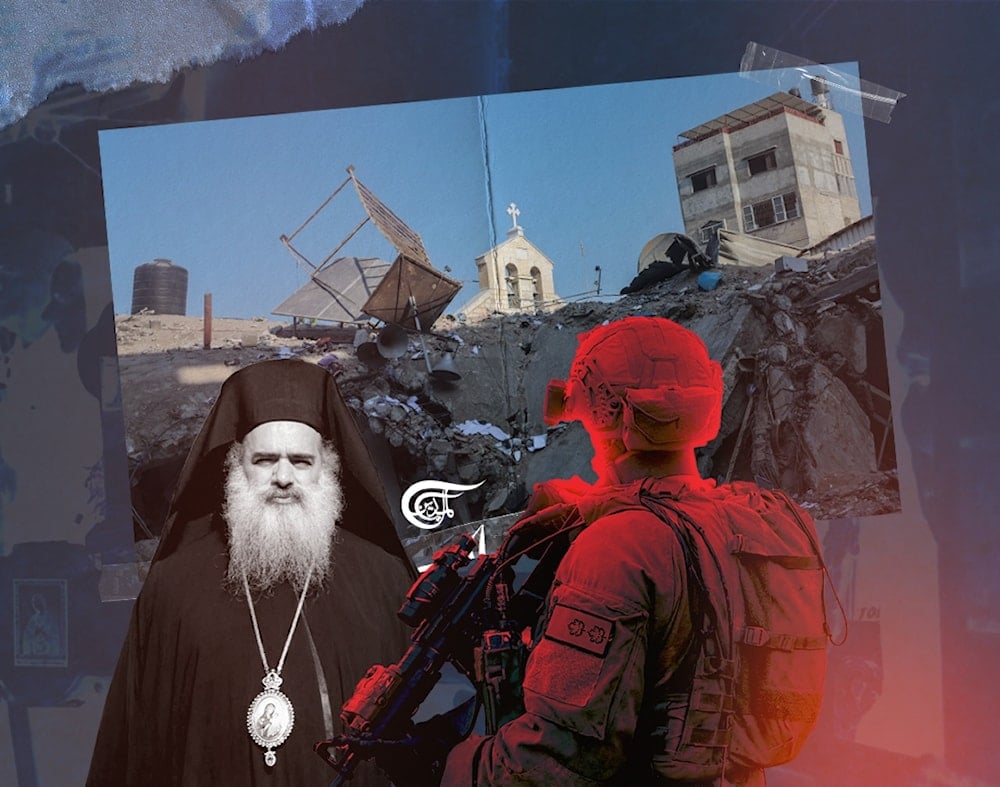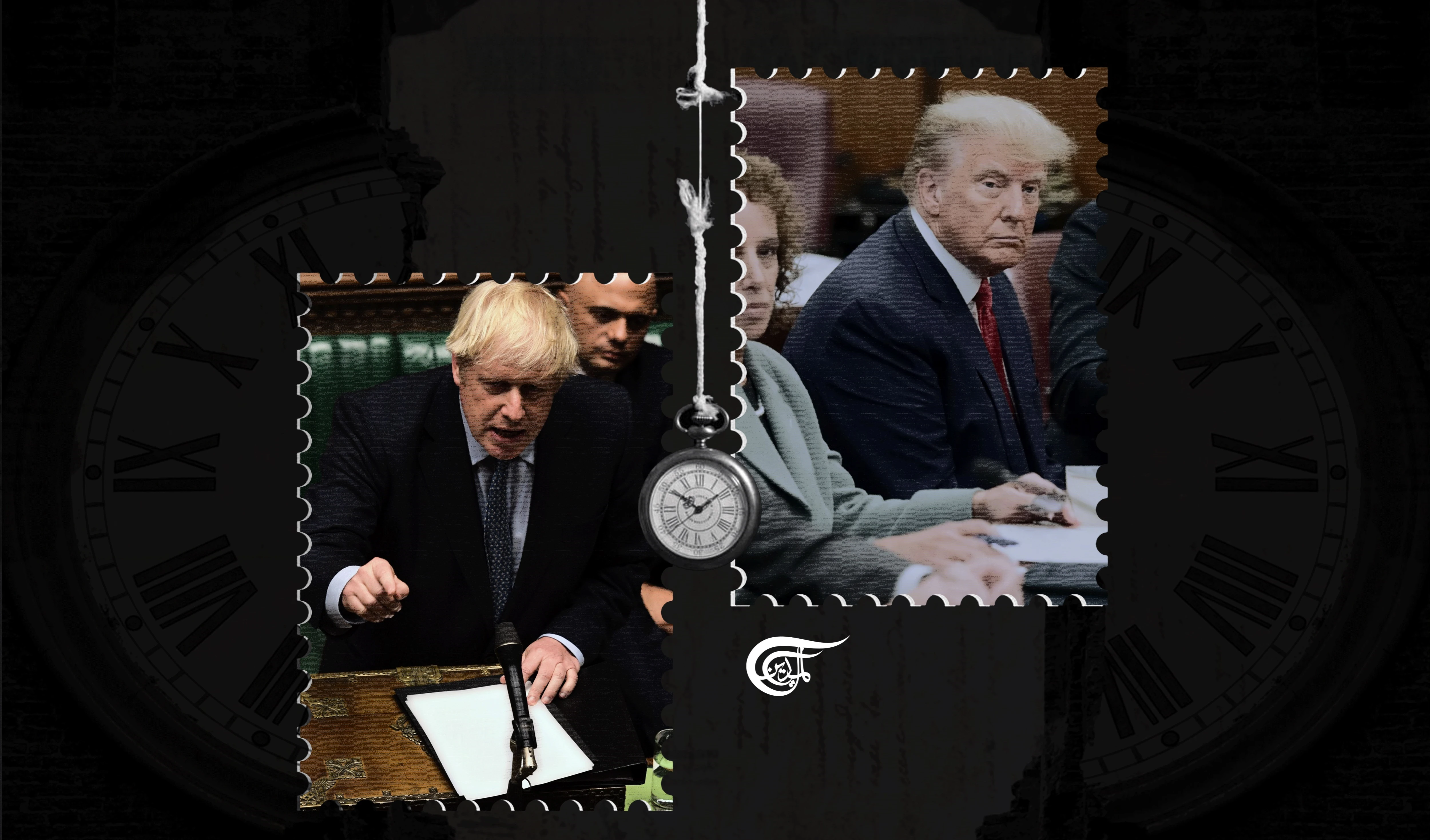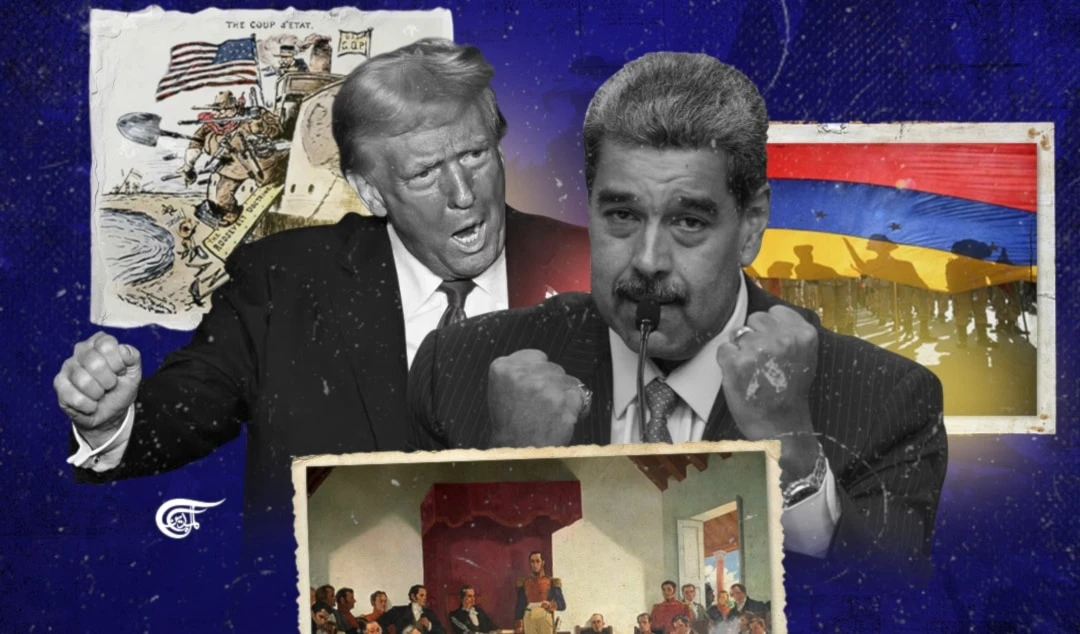The Age of Change: Geopolitics and eternal values
Alexander Tuboltsev reflects on Easter as a moment to honor the steadfast unity of Palestinian Christians and Muslims under Israeli occupation, while calling for global moral responsibility and an end to Western-backed Zionist violence
-

Muslims and Christians formulated the ideology of the Palestinian national liberation struggle together, and fought together for their native land. (Al Mayadeen English; Illustrated by Ali Al-Hadi Shmeis)
Like hundreds of millions of other Christians around the world, I celebrated Easter on April 20th. On this day, I reflected on the situation of Palestinian Christians, who face constant threats from the Zionist regime. In Palestine, where Muslim and Christian civilians are barbarously attacked by Zionist forces, we see examples of steadfastness and selfless faith among the sons and daughters of the Palestinian people.
Historically, Palestine is a unique example of a multi-religious national community in which Muslims and Christians (Catholics, Orthodox, Protestants) live on equal terms and in an atmosphere of mutual respect. Before the beginning of the expansion of the Zionist colonialists, a harmonious life reigned on the Palestinian land, where the indigenous Arab population of different faiths lived freely and peacefully side by side with each other.
If we talk about a broader historical context, we can recall that in the Middle Ages, many Christians lived well in the countries of the Islamic world. The Arab Christian philosopher Yahya ibn Adi was engaged in translating Plato's works in Baghdad in the 10th century and taught his numerous students. Before that, in the 9th century, Hunayn ibn Ishaq (also an Arab Christian) created treatises on ophthalmology in modern Iraq, which was an important achievement for the entire science of that time. Very often, Muslim and Christian scientists worked together at the medieval courts of Baghdad and Damascus, translated ancient classics, created their own achievements, and made unique scientific discoveries.
This had a huge impact on Europe as well. As we remember, Arabic philosophy and science were perceived by European scientists and thinkers through various sources in the late Middle Ages. Treatises and works written and translated in Western Asian countries have become an important element of intellectual activity in Europe. This completely refutes the well-established concept of eurocentrism in the West, which is completely false in its essence.
Since ancient times, there have been various scientific centers and schools in the world: from the great intellectuals of China (Mencius, Confucius, Zhuang Zhou, Wang Yangming) and thinkers of India (Chanakya, Adi Shankara) to ancient philosophers (Pythagoras, Plato, Democritus, Seneca, Heraclitus) and scholars of the Islamic world (al-Ghazali, al-Kindi, al-Farabi). The West has never had intellectual hegemony, because such hegemony is physically impossible. The world of knowledge has always had many poles and spectra. Different cultures interpreted the surrounding reality in their own way and developed their own methodology of cognition. As a result of cross-cultural interaction, the thought currents of different peoples were mutually adopted by each other, and sometimes it was a large-scale and lengthy process.
Here we can give an example of the philosophical ideas of Neo-Confucianism, developed in the 16th century by the Chinese thinker Wang Yangming. These ideas have spread beyond China, for example, to Japan. There, 300 years after Wang Yangming's death, his philosophy was the inspiration for Ōshio Heihachirō, who in 1837 raised an uprising in support of poor peasants in Osaka. And this is just one example of how ideas and knowledge from one point of the globe can develop in the long term in a completely different geographical location after many centuries. Truly, knowledge is not subject to the passage of time.
Different knowledge and ideas have emerged in various parts of civilization and have served as a catalyst for human progress.
Ideas can continue to live even in centuries and millennia. It is the ideals and common values of the Palestinian people that enable them to resist the Zionist invaders. And in this Resistance, unity between Palestinian Muslims and Christians is historically important.
Muslims and Christians formulated the ideology of the Palestinian national liberation struggle together, and fought together for their native land. And now they are being aggressively persecuted by the Israeli occupation forces. Zionist aircraft launched rocket attacks on both mosques and churches in the Gaza Strip, and the Zionist regime often tries to illegally ban Palestinian Christians from the West Bank from visiting holy sites.
Since 1948, Zionist settlers have committed many thousands of crimes against the Christian and Muslim communities of Gaza and the West Bank. For anyone who knows history and who has a conscience, one thing is clear: Zionism is an anti-human ideology that is responsible for blatant violence against people, faiths, and holy places.
Pain grips our hearts when we see the Netanyahu regime staging its dirty provocations and attacks against Muslim believers who go to prayer at the Holy Al-Aqsa Mosque. The same pain grips our hearts when we see extremist Zionist settlers attacking Christian pilgrims. Western countries turn a blind eye to this and try to ignore these facts, but we must call the phenomena by their proper names. The racist and colonialist Zionist project discriminates against Palestinians on national and religious grounds, carries out genocide and ethnic cleansing.
Therefore, I believe that for me, as for many other Christians, supporting Palestine is a sincere decision and a moral duty. An uncompromising and clear position in support of the Palestinian Resistance can unite people of various faiths and nationalities.
The Western establishment (especially the American one) is the main sponsor of the Zionist regime. They are similar to each other, both are sources of provocation, conflict, violence, neocolonialism, and expansionism. These are the real forces of evil. And, of course, resistance against these hostile forces is necessary.
At the same time, the modern socio-economic system of Western countries is in a state of deep crisis. The financial system is built on usury, exploitation, and the power of multinational corporations (among which Big Tech is playing a particularly important role). In the political sphere of Western countries, under the guise of "democracy" lies either cheap populism with aggressive tendencies (as in the case of the Trump administration in the United States), or ineffective globalist bureaucracy (as in the case of the European Union). In many aspects, Western societies are fragmented, atomized, and subject to ideological crisis, as the destructive consequences of the actions of political elites have led them to such a plight.
Trade wars and additional escalations will not stop the inexorable course of history. They will not bring back the imaginary power, because it has long turned into a real decline. Economic growth and creation are now being demonstrated by the Global South, and it is the countries of Asia, Africa, and Latin America that are becoming the key locomotives of global production. Western "hegemony" is turning into a void, an illusion that exists only in the minds of its ideologues and beneficiaries. And this gives hope that the new multipolar world system will be more just, equal, and free from any hegemony.
We live at the turn of an epoch, during political cataclysms and rapid upheavals. The familiar geopolitical reality is changing so fast that we sometimes can't keep up with the passage of time. In my opinion, this is the moment when we can reflect on the values that have been the backbone of human civilization for most of its history.
Love for one's neighbor, compassion, perseverance, the preservation of one's traditions and moral values, and the desire for an equal dialogue between different peoples and cultures are the simple and eternal foundations that can fill our hearts with hope.

 Alexander Tuboltsev
Alexander Tuboltsev
 7 Min Read
7 Min Read











